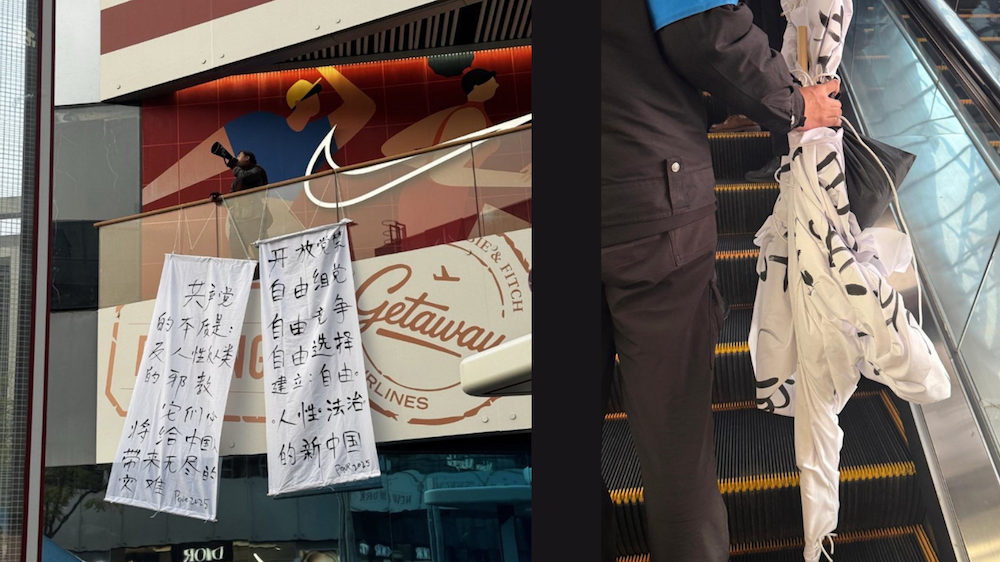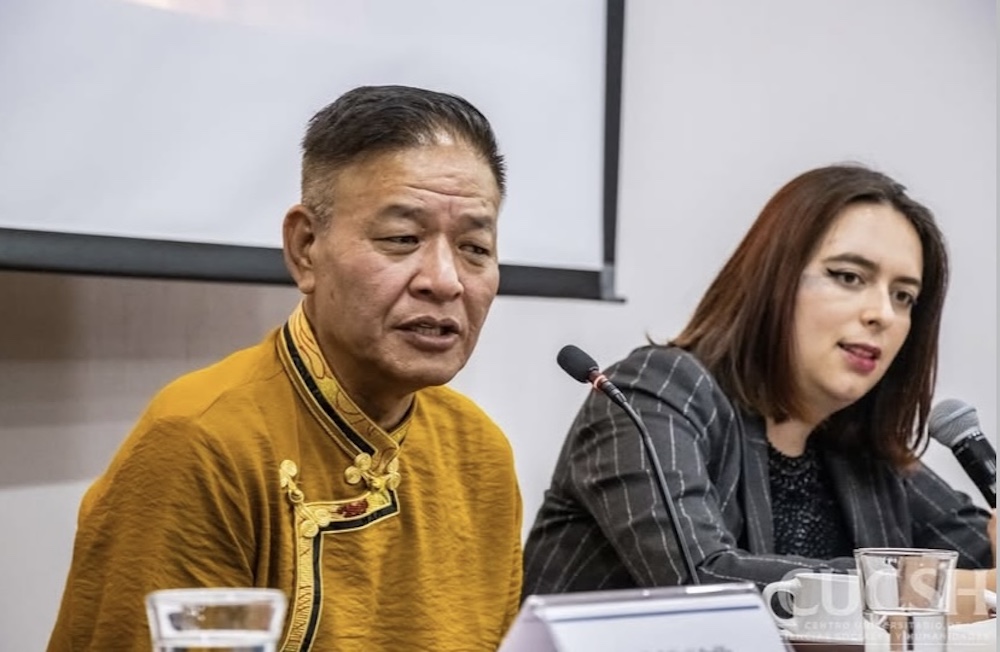Tenzin Nyidon
DHARAMSHALA, Oct. 29: A rare protest in Beijing’s Sanlitun district, held shortly after the conclusion of the Fourth Plenary Session, condemned the Chinese Communist Party and called for an end to its political monopoly, urging free competition, pluralism, and the creation of a new China founded on freedom, humanity, and the rule of law.
Images showed two white vertical banners that read, “The essence of the Communist Party is an anti-human evil cult that will bring endless disaster to China.” The other banner read, “End the Party ban, allow freedom to form political parties, free competition, free choice, and build a new China of freedom, humanity, and rule of law.”
The banners were swiftly removed by security personnel, and while Chinese state media have not confirmed the identity of those responsible, reports indicate that the individual involved has been arrested.
The incident marks the latest example in a wave of solitary, high-visibility actions by individual protestors, often described as “lone warriors,” who display banners or slogans in public spaces to challenge Communist Party rule. Analysts trace this form of dissent to the now-iconic Sitong Bridge protest in Beijing’s Haidian district by Peng Lifa on October 13, 2022, widely seen as the catalyst for a new era of solitary, symbolic protest in China.
During his brief but bold demonstration, Peng unfurled two banners condemning the government’s authoritarianism and demanding sweeping reforms. The slogans read, “No COVID test, we want to eat. No restrictions, we want freedom. No lies, we want dignity. No Cultural Revolution, we want reform. No leaders, we want votes. By not being slaves, we can be citizens.” Another banner urged citizens to strike from work and school to “remove the dictator and national traitor Xi Jinping.” Images of his protest spread rapidly across Chinese social media before censors intervened, and Peng was immediately detained. His whereabouts remain uncertain to this day.
Nearly two years later, on July 30, 2024, a similar banner appeared draped across an overpass in Xinhua County, Hunan province, bearing a call for “freedom and democracy” and condemning President Xi Jinping as a “dictator” and an “authoritarian.” The banner read, “Freedom, democracy, elections, protest school, protest work, protest authoritarian traitor Xi Jinping.” The protest was quickly suppressed, and the individual reportedly behind it, identified as Fang Yirong, went missing shortly afterward.
These acts of dissent are unusual in China, where free speech and criticism are heavily suppressed, and protests often provoke a strong response from authorities. Observers note that the emergence of such banners reflects growing discontent with the Chinese Communist Party’s stringent control over public expression, particularly following the implementation of the ‘Zero COVID’ policy. This policy has sparked sporadic demonstrations against Xi Jinping and the CPC’s governance.









